12 start with B start with B
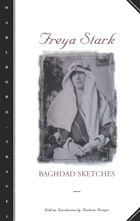

The Bark River valley in southeastern Wisconsin is a microcosm of the state's - indeed, of the Great Lakes region's - natural and human history. "The Bark River Chronicles" reports one couple's journey by canoe from the river's headwaters to its confluence with the Rock River and several miles farther downstream to Lake Koshkonong. Along the way, it tells the stories of Ice Age glaciation, the effigy mound builders, the Black Hawk War, early settlement and the development of waterpower sites, and recent efforts to remove old dams and mitigate the damage done by water pollution and invasive species.
Along with these big stories, the book recounts dozens of little stories associated with sites along the river. The winter ice harvest, grain milling technology, a key supreme court decision regarding toxic waste disposal, a small-town circus, a scheme to link the Great Lakes to the Mississippi River by canal, the murder of a Chicago mobster, controversies over race and social class in Waukesha County's lake country, community efforts to clean up the river and restore a marsh, visits to places associated with the work of important Wisconsin writers - these and many other stories belong to the Bark River chronicles.
For the two voyageurs who paddle the length of the Bark, it is a journey of rediscovery and exploration. As they glide through marshes, woods, farmland, and cities, they acquire not only historical and environmental knowledge but also a renewed sense of the place in which they live. Maps and historical photographs help the reader share their experience.
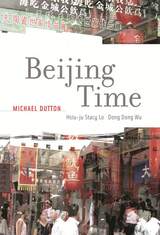
“Where is the market?” inquires the tourist one dark, chilly morning. “Follow the ghosts,” responds the taxi driver, indicating a shadowy parade of overloaded tricycles. “It’s not called the ghost market for nothing!” And indeed, Beijing is nothing if not haunted. Among the soaring skyscrapers, choking exhaust fumes, nonstop traffic jams, and towering monuments, one discovers old Beijing—newly styled, perhaps, but no less present and powerful than in its ancient incarnation. Beijing Time conducts us into this mysterious world, at once familiar and yet alien to the outsider.
The ancient Chinese understood the world as enchanted, its shapes revealing the mythological order of the universe. In the structure and detail of Tian’anmen Square, the authors reveal the city as a whole. In Beijing no pyramids stand as proud remnants of the past; instead, the entire city symbolizes a vibrant civilization. From Tian’anmen Square, we proceed to the neighborhoods for a glimpse of local color—from the granny and the young police officer to the rag picker and the flower vendor. Wandering from the avant-garde art market to the clock towers, from the Monumental Axis to Mao’s Mausoleum, the book allows us to peer into the lives of Beijingers, the rules and rituals that govern their reality, and the mythologies that furnish their dreams. Deeply immersed in the culture, everyday and otherworldly, this anthropological tour, from ancient cosmology to Communist kitsch, allows us to see as never before how the people of Beijing—and China—work and live.

Between Sea and Sahara gives us Algeria in the third decade of colonization. Written in the 1850s by the gifted painter and extraordinary writer Eugene Fromentin, the many-faceted work is travelogue, fiction, stylized memoir, and essay on art. Fromentin paints a compelling word picture of Algeria and its people, questioning France’s—and his own—role there. He shows French dynamism tending to arrogance, tinged with malaise, as well as the complexity of the Algerians and their canny survival tactics. In his efforts to capture the non-Western world on paper as well as on canvas, Fromentin reveals much about the roots of a colonial relationship that continues to affect the Algeria of today. He also reveals his own development as painter, writer—and human being.
Now available for the first time in English, Between Sea and Sahara appeals to today’s reader on many levels—as a story of color, romance, and dramatic tension; as an eywitness account of the colonial experience in Algeria; as a study in trans-genre text, foreshadowing Fromentin’s psychological masterpiece, the novel Dominique. And, as Valérie Orlando points out in her introduction, Fromentin opens a window on the ethos informing the fashion of Orientalism that flourished with colonialism.

In 1993, Alan Rabinowitz, called "the Indiana Jones" of wildlife science by The New York Times, arrived for the first time in the country of Myanmar, known until 1989 as Burma, uncertain of what to expect. Working under the auspices of the Wildlife Conservation Society, his goal was to establish a wildlife research and conservation program and to survey the country's wildlife. He succeeded beyond all expectations, not only discovering a species of primitive deer completely new to science but also playing a vital role in the creation of Hkakabo Razi National Park, now one of Southeast Asia's largest protected areas.
Beyond the Last Village takes the reader on a journey of exploration, danger, and discovery in this remote corner of the planet at the southeast edge of the Himalayas where tropical rain forest and snow-covered mountains meet. As we travel through this "lost world" -- a mysterious and forbidding region isolated by ancient geologic forces -- we meet the Rawang, a former slave group, the Taron, a solitary enclave of the world's only pygmies of Asian ancestry, and Myanmar Tibetans living in the furthest reaches of the mountains. We enter the territories of strange, majestic-looking beasts that few people have ever heard of and fewer have ever seen -- golden takin, red goral, blue sheep, black barking deer. The survival of these ancient species is now threatened, not by natural forces but by hunters with snares and crossbows, trading body parts for basic household necessities.
The powerful landscape and unique people the author befriends help him come to grips with the traumas and difficulties of his past and emerge a man ready to embrace the world anew. Interwoven with his scientific expedition in Myanmar, and helping to inform his understanding of the people he met and the situations he encountered, is this more personal journey of discovery.
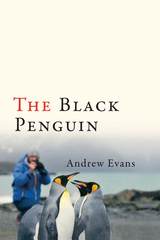
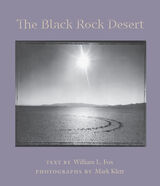
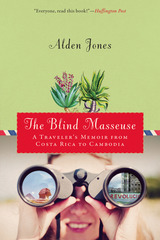
By way of explorations to Costa Rica, Bolivia, Nicaragua, Cuba, Burma, Cambodia, Egypt, and around the world on a ship, Jones chronicles her experience as a young American traveler while pondering her role as an outsider in the cultures she temporarily inhabits. Her wanderlust fuels a strong, high-adventure story and, much in the vein of classic travel literature, Jones's picaresque tale of personal evolution informs her own transitions, rites of passage, and understandings of her place as a citizen of the world. With sharp insight and stylish prose, Jones asks: Is there a right or wrong way to travel? The Blind Masseuse concludes that there is, but that it's not always black and white.
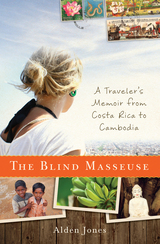
By way of explorations to Costa Rica, Bolivia, Nicaragua, Cuba, Burma, Cambodia, Egypt, and around the world on a ship, Jones chronicles her experience as a young American traveler while pondering her role as an outsider in the cultures she temporarily inhabits. Her wanderlust fuels a strong, high-adventure story and, much in the vein of classic travel literature, Jones's picaresque tale of personal evolution informs her own transitions, rites of passage, and understandings of her place as a citizen of the world. With sharp insight and stylish prose, Jones asks: Is there a right or wrong way to travel? The Blind Masseuse concludes that there is, but that it's not always black and white.
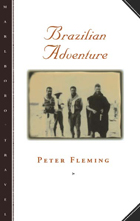
Nothing indeed. In 1932, Peter Fleming, a literary editor, traded his pen for a pistol and took off as part of the celebrated search for missing English explorer Colonel P.H. Fawcett. With meager supplies, faulty maps, and packs of rival newspapermen on their trail, Fleming and his companions marched, canoed, and hacked through 3,000 miles of wilderness and alligator-ridden rivers in search of the fate of the lost explorer. One of the great adventure stories, Brazilian Adventure is as fresh a story today as it was when originally published in 1933.
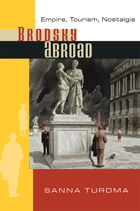
Expelled from the Soviet Union in 1972 and honored with the Nobel Prize fifteen years later, poet Joseph Brodsky in many ways fit the grand tradition of exiled writer. But Brodsky’s years of exile did not render him immobile: though he never returned to his beloved Leningrad, he was free to travel the world and write about it. In Brodsky Abroad, Sanna Turoma discusses Brodsky’s poems and essays about Mexico, Brazil, Turkey, and Venice. Challenging traditional conceptions behind Brodsky’s status as a leading émigré poet and major descendant of Russian and Euro-American modernism, she relocates the analysis of his travel texts in the diverse context of contemporary travel and its critique. Turoma views Brodsky’s travel writing as a response not only to his exile but also to the postmodern and postcolonial landscape that initially shaped the writing of these texts.
In his Latin American encounters, Brodsky exhibits disdain for third-world politics and invokes the elegiac genre to reject Mexico’s postcolonial reality and to ironically embrace the romanticism of an earlier Russian and European imperial age. In an essay on Istanbul he assumes Russia’s ambiguous position between East and West as his own to negotiate a distinct, and controversial, interpretation of Orientalism. And, Venice, the emblematic tourist city, becomes the site for a reinvention of his lyric self as more fluid, hybrid, and cosmopolitan.
Brodsky Abroad reveals the poet’s previously uncharted trajectory from alienated dissident to celebrated man of letters and offers new perspectives on the geopolitical, philosophical, and linguistic premises of his poetic imagination.

With rich musical traditions, both classical and folk, and possessing a language like almost no other, Hungary is in the process of abandoning the trappings of its communist past while attempting to preserve its culture from creeping globalization. Clapton delights in the fact that certain old-fashioned attitudes of courtesy, at times stemming from the very structures of the Magyar tongue, are still deeply ingrained in Hungarian society. At the same time, despite its association with world-famous composers such as Bartók, Liszt, and Kodály, music is far from an activity enjoyed only by the elite. Including plenty of tips on food, drink, and sites of interest, Budapest describes the capital in uniquely melodic terms and will delight lovers of travel and music alike.
READERS
Browse our collection.
PUBLISHERS
See BiblioVault's publisher services.
STUDENT SERVICES
Files for college accessibility offices.
UChicago Accessibility Resources
home | accessibility | search | about | contact us
BiblioVault ® 2001 - 2024
The University of Chicago Press









